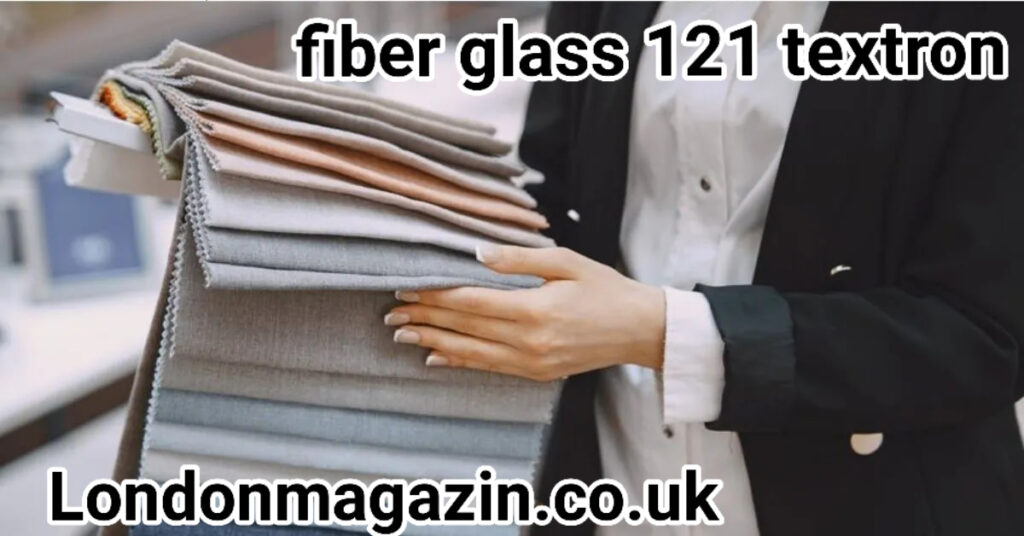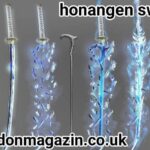Introduction
In today’s world of advanced materials, fiberglass plays a critical role across a wide range of industries. Among the many varieties of fiberglass, Fiber Glass 121 Textron stands out due to its unique properties and applications. This article aims to explore the details of Fiber Glass 121 Textron, shedding light on its composition, characteristics, applications, manufacturing process, and more. Additionally, we’ll provide a thorough conclusion and some frequently asked questions (FAQs) to ensure you have a complete understanding of this innovative material.
What is Fiber Glass 121 Textron?
Fiber Glass 121 Textron is a specific type of fiberglass product manufactured by Textron, a renowned global conglomerate known for producing advanced materials and components. This particular fiberglass variant is designed with specific characteristics that make it suitable for use in industries such as aerospace, automotive, construction, and more.
Fiberglass, in general, is made from fine fibers of glass, which are woven or matted together to create strong, durable materials. What distinguishes Fiber Glass 121 Textron from other fiberglass types is its formulation, intended use, and specific performance qualities. It is engineered to offer enhanced strength, heat resistance, and versatility in various industrial applications.
Key Characteristics of Fiber Glass 121 Textron
Fiber Glass 121 Textron is a high-performance composite material. The following characteristics contribute to its prominence in the market:
- Strength and Durability: One of the standout features of Fiber Glass 121 Textron is its exceptional strength-to-weight ratio. This makes it ideal for applications that require a lightweight yet durable material. Despite its light weight, it exhibits high tensile strength, making it resistant to deformation or breaking under stress.
- Heat Resistance: It has impressive resistance to high temperatures, making it suitable for use in environments that experience extreme heat. This property is particularly valuable in aerospace and automotive industries, where parts must perform reliably under high thermal stress.
- Corrosion Resistance: Unlike metals that can rust or corrode over time, fiberglass, including the 121 Textron variant, is highly resistant to chemical corrosion. This quality ensures that components made from this material maintain their structural integrity even when exposed to harsh chemicals or outdoor elements.
- Lightweight: The low weight of Fiber Glass 121 Textron is another significant benefit. It reduces the overall weight of finished fiber glass 121 textron products, which is especially crucial in industries like aerospace and automotive, where reducing weight can improve efficiency and fuel economy.
- Electrical Insulation: In addition to its physical properties, Fiber Glass 121 Textron is also an excellent electrical insulator, making it a preferred choice in electronics and electrical applications.
- Flexibility: The material’s flexibility makes it adaptable to various shapes and forms, which can be crucial when designing complex parts or components that need to fit into tight spaces.
Manufacturing Process of Fiber Glass 121 Textron
The production of Fiber Glass 121 Textron involves several stages, ensuring that the final product meets the high standards of quality required for industrial use. The key stages include:
- Glass Fiber Formation: The process begins with the creation of glass fibers, which are produced by melting silica sand, limestone, and other materials at high temperatures. These materials are melted in a furnace and then drawn into fine fibers using a series of mechanical processes.
- Weaving or Matting: Once the fibers are created, they are woven or laid down in mats. This stage determines the structure of the fiberglass material, which can either be a continuous strand or chopped into shorter lengths. Textron’s Fiber Glass 121 variant typically features woven or continuous strand fiberglass for optimal strength and flexibility.
- Resin Impregnation: After the fibers are formed into mats or woven sheets, they are impregnated with resin to bond the glass fibers together and give the material its rigid structure. The type of resin used can vary, but polyester or epoxy resins are commonly applied to fiberglass products.
- Curing: The resin-impregnated fiberglass undergoes a curing process in which it is heated to harden the material. This step solidifies the fiberglass into a final shape, ensuring that it maintains its integrity under various conditions.
- Cutting and Shaping: The cured fiberglass is then cut into the desired shape or size. For Fiber Glass 121 Textron, this could mean anything from sheets and panels to intricate components used in aerospace or automotive applications.
Applications of Fiber Glass 121 Textron
The exceptional properties of Fiber Glass 121 Textron make it highly versatile and useful in a wide array of industries. Here are some of the most common applications of this material:

Aerospace Industry
In aerospace, lightweight and durable materials are essential for the construction of aircraft and spacecraft. Fiber Glass 121 Textron’s combination of low weight, high strength, and heat resistance makes it an ideal material for aerospace applications. Components such as wing structures, fuselage panels, and insulation materials often incorporate fiberglass. The material’s excellent insulating properties also help prevent heat transfer in sensitive parts of aircraft engines.
Automotive Industry
The automotive sector relies heavily on lightweight materials to improve fuel efficiency and vehicle performance. Fiber Glass 121 Textron is widely used in the fiber glass 121 textron manufacturing of car parts like bumpers, panels, and interior components. Its strength and impact resistance are crucial for vehicle safety, while its light weight contributes to overall vehicle efficiency.
Construction and Building Materials
Fiber Glass 121 Textron finds applications in the construction industry due to its strength, corrosion resistance, and versatility. It is used in the production of building insulation, roofing materials, and reinforced panels. The material’s ability to withstand harsh environmental conditions makes it an excellent choice for both commercial and residential construction.
Electronics and Electrical Applications
In electrical systems, insulation is crucial to fiber glass 121 textron preventing short circuits and ensuring the safe operation of equipment. Fiber Glass 121 Textron, with its excellent electrical insulation properties, is commonly used in the production of circuit boards, transformers, and other electrical components. Its ability to resist high temperatures further enhances its suitability for these applications.
Marine Industry
The marine industry also benefits from the properties of Fiber Glass 121 Textron. Boats, yachts, and other marine vessels are often constructed using fiberglass due to its corrosion resistance, low maintenance, and lightweight nature. The material helps improve the durability and longevity of marine vehicles, ensuring they can withstand exposure to saltwater and rough conditions.

Advantages of Using Fiber Glass 121 Textron
The primary advantages of using Fiber Glass 121 Textron include its exceptional strength-to-weight ratio, heat and corrosion resistance, and fiber glass 121 textron electrical insulating properties. These qualities make it an ideal material for high-performance applications across multiple sectors. Additionally, its flexibility allows for customization, ensuring that it can meet the specific needs of various industries.
Challenges and Considerations
While Fiber Glass 121 Textron offers numerous benefits, it is not without its challenges. One key consideration is the environmental impact of fiberglass production. Like many advanced materials, the production of fiberglass requires significant energy input, and the disposal of fiberglass waste can be challenging. However, ongoing efforts in recycling and developing sustainable alternatives are addressing these issues.
Conclusion
Fiber Glass 121 Textron is a versatile, high-performance fiber glass 121 textron material that offers a wide range of benefits across numerous industries. Its unique combination of strength, durability, heat resistance, and flexibility makes it an invaluable material for applications in aerospace, automotive, construction, electronics, and more. While there are challenges related to its production and disposal, the ongoing advancements in material science are working towards mitigating these issues. As industries continue to innovate, the demand for specialized materials like Fiber Glass 121 Textron will undoubtedly grow, cementing its role as an essential component in modern manufacturing.
Also read this; dorsten-vs-fresno-pollution-comparison
FAQs About Fiber Glass 121 Textron
- What is the difference between Fiber Glass 121 Textron and regular fiberglass?
Fiber Glass 121 Textron is a specialized type of fiberglass designed for high-performance applications. It offers superior strength, heat resistance, and flexibility compared to standard fiberglass, making it suitable for industries like aerospace, automotive, and electronics. - What industries use Fiber Glass 121 Textron?
This material is commonly used in aerospace, automotive, marine, construction, and electrical industries due to its durability, lightweight properties, and heat resistance. - Is Fiber Glass 121 Textron environmentally friendly?
While fiberglass production does have some environmental impact, ongoing research and development are focused on improving the sustainability of fiberglass materials, including recycling and reducing energy consumption in production. - Can Fiber Glass 121 Textron be used for insulation purposes?
Yes, its excellent insulating properties make it a popular choice for electrical insulation and thermal insulation applications, particularly in high-heat environments. - How is Fiber Glass 121 Textron manufactured?
The manufacturing process involves melting raw materials into glass fibers, which are then woven or matted together and impregnated with resin. The material is then cured and shaped into the desired product. - What are the benefits of using Fiber Glass 121 Textron in the automotive industry?
The lightweight nature of Fiber Glass 121 Textron helps improve fuel efficiency, while its strength and durability provide safety and performance benefits in the automotive sector. - Can Fiber Glass 121 Textron be recycled?
While fiberglass can be challenging to recycle, efforts are being made to develop better recycling methods. However, it is still relatively difficult to recycle compared to other materials.


